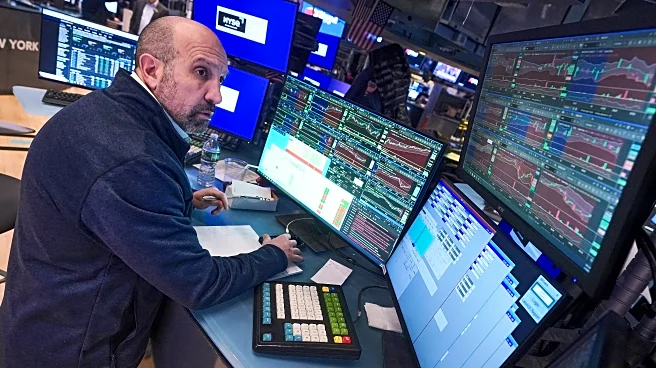Rapid Read • 8 min read
Manufacturers globally are increasing their investments in artificial intelligence (AI) and smart manufacturing technologies to address labor shortages, skills gaps, and cybersecurity threats. According to Rockwell Automation's 10th annual State of Smart Manufacturing Report, AI and machine learning are becoming essential tools for quality control, process optimization, and cybersecurity in the manufacturing sector. The survey, conducted with Sapio Research, included insights from 1,560 manufacturing leaders across 17 major manufacturing nations, representing industries such as hi-tech, electronics, semiconductors, metals, consumer goods, renewable energy, and life sciences. Findings indicate that 56% of manufacturers are piloting smart manufacturing initiatives, 20% have implemented them at scale, and another 20% plan to invest in the coming year.
AD
The adoption of AI in manufacturing is crucial as it addresses significant challenges such as labor shortages and cybersecurity threats. As AI adoption increases, the risk of cyberattacks also rises, prompting manufacturers to strengthen IT and operational technology security. Nearly half of the respondents plan to use AI/ML for cybersecurity in the next 12 months. Additionally, AI is expected to save time by reducing manual tasks, allowing workers to focus on value-added activities. This shift in roles is not replacing workers but repurposing them, with companies expecting to hire more talent with advanced technology skills. AI's role in quality control and sustainability initiatives is expanding, with manufacturers aiming to improve efficiency, product quality, and energy management.
Manufacturers are expected to continue investing in AI technologies, including generative and causal AI, over the next five years. These technologies are seen as central to achieving cost reductions, efficiency gains, and supply chain resilience. The report emphasizes the importance of balancing technological advancement with workforce development, highlighting the need for continuous training, secure digital architectures, and scalable AI applications to maintain competitiveness in the global market.
The integration of AI in manufacturing not only addresses immediate challenges but also sets the stage for long-term shifts in the industry. As AI technologies become more prevalent, manufacturers will need to navigate ethical considerations related to data privacy and the impact of automation on employment. The focus on sustainability and efficiency through AI could lead to significant environmental benefits, aligning with global efforts to reduce carbon footprints and enhance resource management.
AD
More Stories You Might Enjoy












